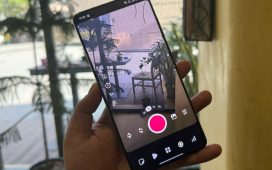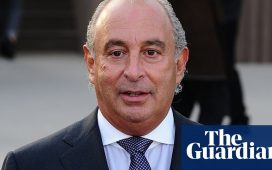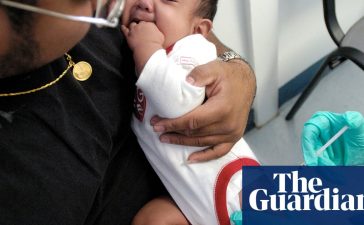The founder of the first major Black children’s magazine in the UK is to open a journalism school to combat representation problems in the creative industries.
Serlina Boyd, who founded Cocoa Girl magazine with her daughter Faith, then aged six, during lockdown in 2020, will open the Cocoa School of Journalism and Creative Arts on Monday.
The school, based in Beckenham, south London, will teach children about news reporting, video editing and illustration.
“We don’t just teach journalism, we teach creative writing and music, and it will be a hub that champions creativity,” said Boyd.
“Doing this journalism school, it’s going to inspire the next generation to see that there is a whole new avenue that they can go down instead of the normal stereotypical routes that they may pick, and we do it in a fun way.”
The unique hub will also have a parents’ and guardians’ storytelling centre and offer a fashion styling course, with adult evening classes for people who want to learn a new skill.
Feeling disillusioned with the lack of representation in journalism and the creative industries, Boyd was moved to do something to challenge it. She said: “It’s the statistics that got me. They are quite shocking and I feel that there need to be more journalists telling our stories.
“According to the Sutton Trust, 80% of editors went to private school; only 11% of journalists are from working-class backgrounds, and a measly 0.2% of journalists are Black.”
Cocoa magazine is put together by a team of journalists aged 10 and above and is distributed in 500 schools across the UK. Soon after founding Cocoa for girls in 2020, a Cocoa for boys was launched.
Boyd said the impact of teaching journalistic skills to the next generation of Black children had been amazing.
“A group of our girls interviewed Halle Bailey, who starred in the recent Little Mermaid movie as the first Black depiction of Ariel, and that video went absolutely viral,” she said.
“It allowed children that are normally seen in a positive light to be seen as such and to tell their story, and basically fit their own narrative and not wait for the world to paint a picture which is not necessarily true.”
after newsletter promotion
The school, which will run every day during after-school hours and throughout the day during half-term, will have a “no phone” policy.
“With the school we are going back to basics, children are so used to just scrolling, and they are not picking up the pen and interacting, so we are changing that,” Boyd said.
The response to the announcement of the school has been overwhelming, Boyd says, with more than 300 signups from parents wanting to enrol their children.
“Parents have been crying out for this. This school is a chance for children from under-represented backgrounds to improve their social skills and we are all just really excited,” she said.











